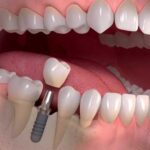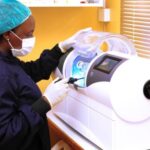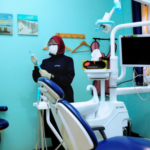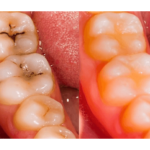Oral surgeons are dentists specialized in oral surgery of the mouth and jaws. Sometimes restorative dentistry is not enough to save the tooth and then oral surgery is needed to pull or extract a tooth. In many cases, a patient who has a tooth pulled experiences little or no discomfort thanks to anesthetics and sedatives.
Oral surgeons may also insert dental implants. Implants look and feel like a real tooth and are inserted where the missing tooth root was. Implants are anchored to the jawbone or metal framework on the bone. In some cases, implants can be used to attach dentures.
Conditions that may require Oral Surgery include;
- Impacted Teeth
- Tooth Loss
- Unequal jaw growth: – In some individuals, the upper and lower jaws fail to grow properly. This can cause difficulty in speaking, eating, swallowing, and breathing. While some of these problems — like improper teeth alignment — can be corrected with braces and other orthodontic appliances, more serious problems require oral surgery to move all or part of the upper jaw, lower jaw, or both into a new position that is more balanced, functional, and healthy.
- Improve fit of dentures: – For first-time denture wearers, oral surgery can be done to correct any irregularities of the jaws prior to creating the dentures to ensure a better fit. Oral surgery can also help long-term denture wearers. Supporting bone often deteriorates over time resulting in dentures that no longer fit properly. In severe cases, an oral surgeon can add a bone graft to areas where little bone remains.
- Temporomandibular joint (TMJ) disorders: – Dysfunction of the TMJ, the small joint in front of the ear where the skull and lower jaw meet, is a common source of headache and facial pain. Most patients with TMJ disorders can be successfully treated with a combination of oral medications, physical therapy, and splints. However, joint surgery is an option for advanced cases and when the diagnosis indicates a specific problem in the joint.






